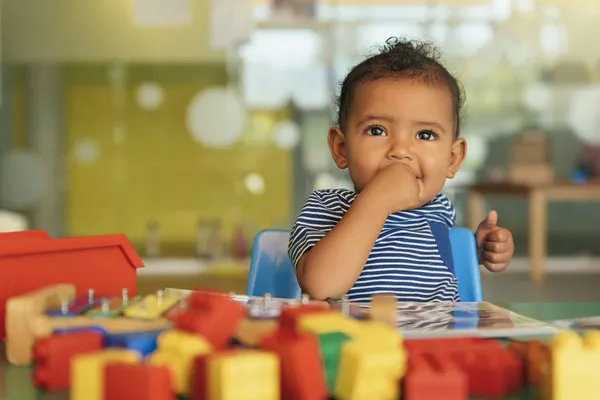In an era where education is widely recognized as a fundamental building block of society, the historical context of early childhood education emerges as a crucial factor in understanding its significance today. Delving into the roots of this essential component of human development not only sheds light on its evolution but also underscores its enduring importance.
Early childhood education, often abbreviated as ECE, pertains to the formal and informal educational experiences a child encounters from birth through the early years of life, typically up to the age of eight. It encompasses a wide range of activities, from structured classroom settings to informal learning within the family and community.
The historical perspective on early childhood education reveals its transformation from a primarily familial and community-based endeavor into a structured and standardized system. This evolution has been driven by a growing recognition of its profound impact on an individual’s cognitive, social, and emotional development.
In the not-so-distant past, formalized education for young children was a luxury reserved for the elite. However, the late 18th and 19th centuries saw significant shifts in societal attitudes toward early childhood education. Pioneers like Johann Pestalozzi and Friedrich Fröbel advocated for educational practices that considered the unique needs and developmental stages of young children.
The introduction of kindergarten by Fröbel in the early 19th century marked a turning point in early childhood education. This novel concept emphasized play-based learning, fostering creativity, and nurturing a child’s natural curiosity. It laid the groundwork for modern ECE principles that continue to influence educational practices worldwide.
The historical trajectory of early childhood education illustrates its role as a vital foundation for later learning and social development. Research consistently shows that high-quality ECE programs can lead to improved academic performance, better social skills, and reduced disparities in educational outcomes. Thus, understanding its historical roots allows us to appreciate its contemporary relevance.
Today, early childhood education is a global priority, with governments and policymakers investing in its expansion and enhancement. The recognition of its long-term societal benefits, including reduced crime rates, enhanced workforce productivity, and improved social cohesion, reinforces the importance of early childhood education as a catalyst for positive change.
In conclusion, the historical context of early childhood education serves as a compelling reminder of its enduring significance. From its humble beginnings as a family-centered endeavor to its present status as a critical pillar of education systems worldwide, ECE has evolved to reflect our changing understanding of child development. By recognizing its historical roots, we gain a deeper appreciation for its pivotal role in shaping the future of our society, one child at a time.
FAQs about why is the history of early childhood education important
Why is understanding the history of early childhood education important?
Understanding the history of early childhood education is vital because it provides insights into the evolution of educational practices for young children. It helps us appreciate the reasons behind current educational approaches and their impact on child development.
How has early childhood education changed over time?
Early childhood education has evolved from informal family and community-based learning to structured and standardized systems. The emphasis has shifted from mere custodial care to holistic development, incorporating principles like play-based learning and individualized attention.
Who were some influential figures in the history of early childhood education?
Notable figures include Johann Pestalozzi and Friedrich Fröbel. Pestalozzi advocated for education that considered a child’s unique needs, while Fröbel introduced the concept of kindergarten, emphasizing play-based learning and nurturing creativity.
What impact does understanding this history have on current early childhood education practices?
Understanding the history of early childhood education informs current practices by highlighting the importance of tailored approaches that address the cognitive, social, and emotional needs of young children. It reinforces the significance of play, creativity, and individualized learning.
Why is early childhood education considered a societal priority today?
Early childhood education is recognized as a societal priority because of its long-term benefits, including improved academic performance, reduced disparities in educational outcomes, enhanced workforce productivity, and lower crime rates. It is seen as an investment in the future well-being of society.


